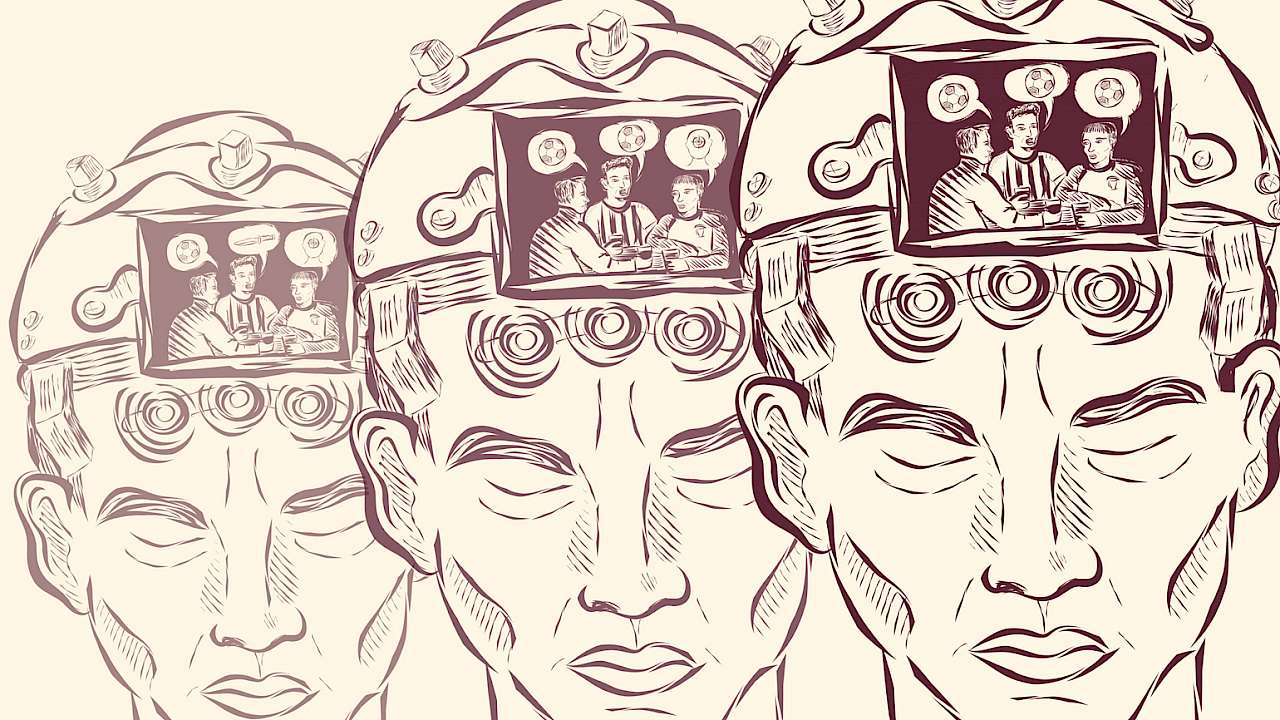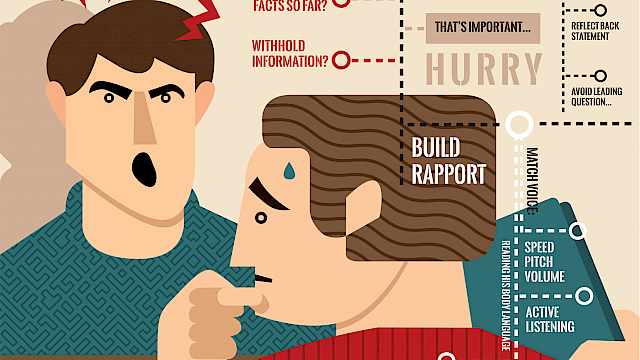Research on eliciting detailed accounts from cooperative individuals is predominantly focused on recall of isolated incidents, such as witnessing a robbery or assault. However, there are occasions where information needs to be reported about multiple repeated events, such as attendance at regular meetings of a terrorist cell or a criminal gang.
Research indicates that we remember unique and repeated events differently and, as a result, reporting repeated events can be challenging.
Due to the reconstructive nature of memory, when experiencing repeated events, we build a script or schema in our memory based on what usually happens. This is an adaptive mechanism of memory that we use every day, so that we anticipate what is likely to happen next time we attend a meeting at work or have a family dinner during the holidays.
The events are not necessarily identical, but there is a general – and similar – routine. In a scenario where a terrorist group plans a series of attacks, members of the group will have to meet, discuss the target and access equipment to carry out the attack. They will have to arrange the logistics for the day of the attack and allocate different responsibilities and roles to different individuals.
Although some details will predictably vary every time – the target, the equipment acquired, and potentially even the main actors – the overall routine remains relatively stable across all gatherings. As a result, the variable details tend to fade away from memory faster and become part of the overall consistent routine. Exposure to repeated events can therefore be beneficial as it strengthens the script in our memory.
People are likely to report the gist of what usually occurs rather than something that a specific person said or did
When asked about several work meetings one attended in the past month, people are likely to report the gist of what usually occurs rather than something that a specific person said or did in an individual meeting. Importantly, however, these specific variable details can still be accessed provided appropriate cues are used at retrieval.
Recent evidence suggests that, if something unexpected occurred in an event, then that particular instance becomes more memorable (a targeted effect). It may even be true that the memory for all instances is improved (a general effect) as a result. For instance, if during the successful planning of a series of terrorist attacks, a specific attempt fails because of some complication that would be a deviation from the general script, this might enhance one’s memory for the unsuccessful attempt or for the whole series of attacks – to some extent because it facilitates separating the repeated events.
To date, research on effective memory-enhancing techniques to facilitate reporting of repeated events with adult witnesses or informants is very limited. However, there is a wealth of research on improving the reporting of individual instances of repeated events with child interviewees, aiming to facilitate criminal investigations of cases of abuse.
Evidence suggests that to improve recall for instance-specific details, aiding recall of individual instances is crucial. To this end, a strategy that would be consistent with what we know about memory is to initially encourage a free narrative about the events to facilitate accurate reporting and the identification of ‘labels’ for individual occurrences.
A related strategy is to ask about a time that was more memorable from the series of events, or given that a deviation might be more memorable, to ask whether there was a time where something different happened. Crucially, although interviewers are encouraged to ask instance-specific questions to elicit information about individual occurrences, they should use open-ended prompts as there is an increased risk of source confusion in the reporting of repeated events that can consequently increase the risk for inaccurate and suggestible reporting.
While the above can help elicit detail from repeated events, there remain significant challenges and unaddressed questions regarding the use of common information elicitation techniques in these situations.
Timeline Technique
In our laboratory, we have recently conducted two experiments where we examined the effectiveness of the Timeline Technique extended by additional mnemonics and follow-up open questions to aid recall of repeated events and elicit detailed reports with adult interviewees. The Timeline, bolstered by cues and prompts, facilitated recall for specific occurrences and improved the reporting of attributions of statements and actions by perpetrators ('who did/said what and when') compared to a free request of information.
Although further research is needed in this area, our results show that the use of flexible formats that promote interviewee-led reporting can be useful in eliciting detailed accounts of complex repeated events.
Copyright Information
As part of CREST’s commitment to open access research, this text is available under a Creative Commons BY-NC-SA 4.0 licence. Please refer to our Copyright page for full details.
IMAGE CREDITS: Copyright ©2024 R. Stevens / CREST (CC BY-SA 4.0)







